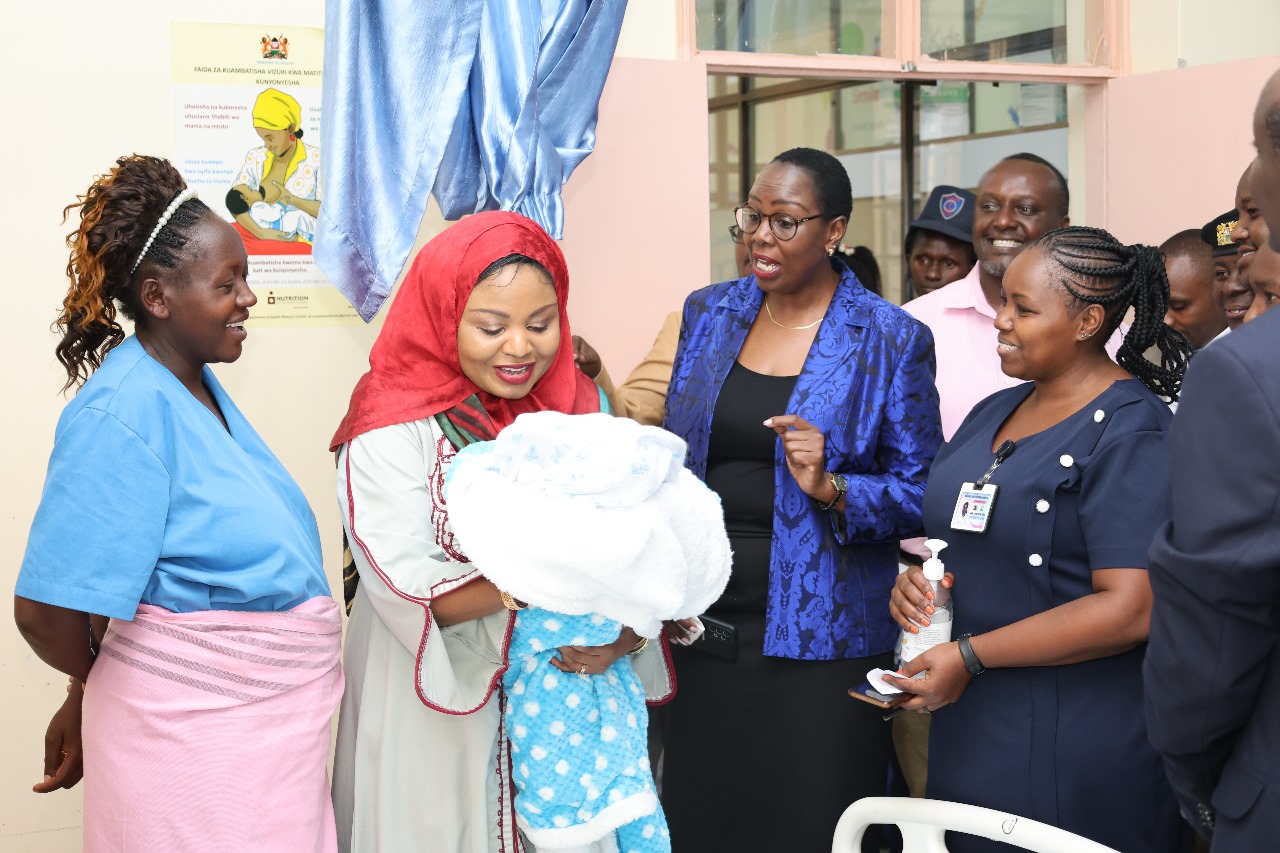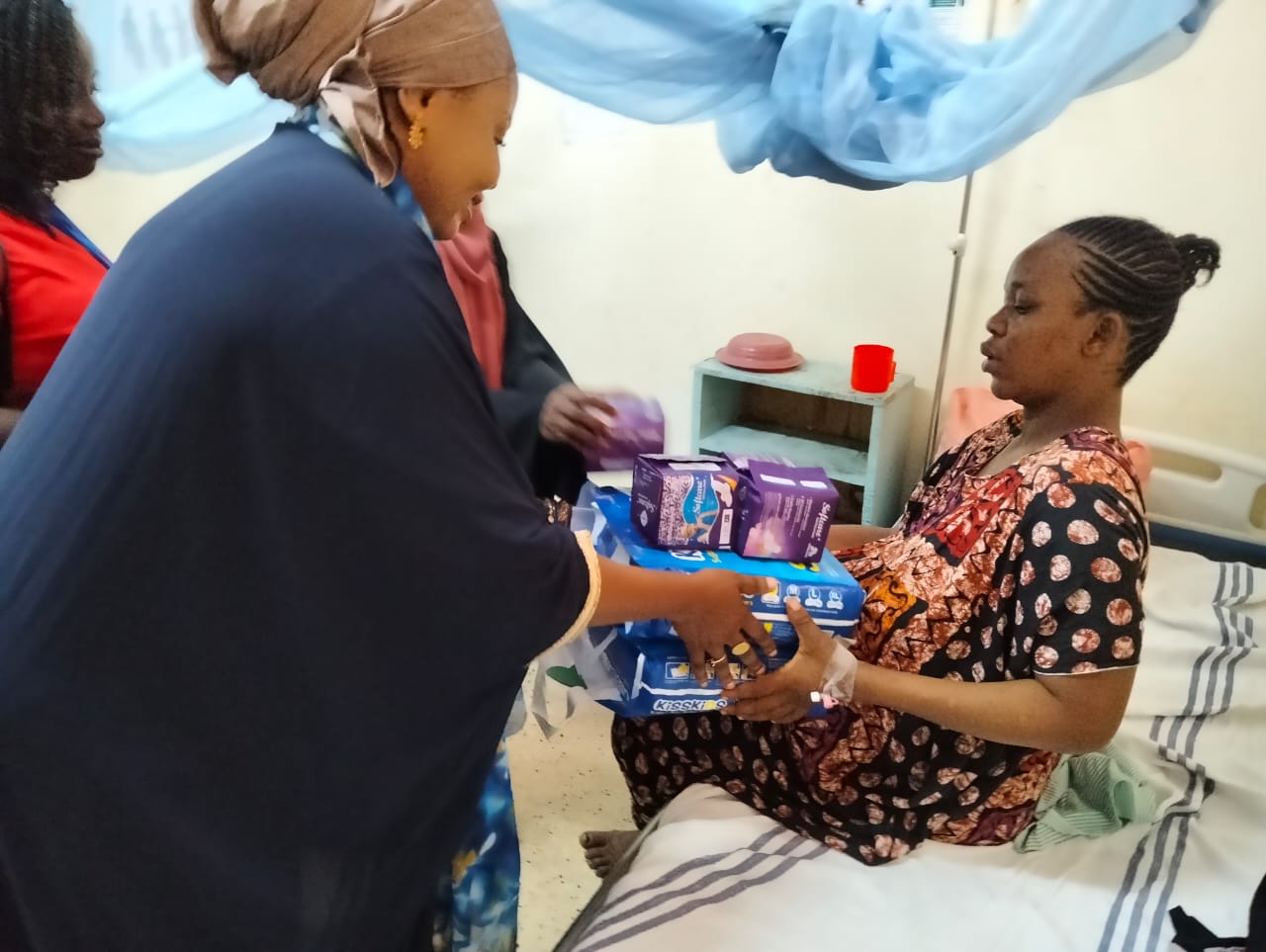
 Public Communication officer with the Office of Government Spokesperson, Munira Mandano./COURTERSY
Public Communication officer with the Office of Government Spokesperson, Munira Mandano./COURTERSY
“After a storm comes a calm.” This is true of the Universal Health Coverage (UHC) in Kenya, as the government made significant improvements in the programme by instituting unprecedented policy changes, attracting acrimonious opposition from some quarters of the population.
The
developments have been achieved through the Social Health Authority (SHA)
establishing the mandatory Social Health Insurance Fund (SHIF),
Primary Health Care
Fund (PHCF), and Emergency, Critical and Chronic Illnesses Fund (ECCIF)
under the expanded Taifa Care Programme.
This action attracted protracted public outcry, but the government stood its ground with the conviction that every new program has teething problems at its formative stage and no amount of opposition would deter implementation of the long-tested UHC program.
The SHA has enrolled more than 22 million Kenyans so far compared to a paltry 8 million Kenyans who had registered with the National Health Insurance Fund (NHIF) for 43 years, meaning uptake by Kenyans has fast gained traction.
This has in effect expanded the access to social health insurance by 11.7 million Kenyans and ensured that all Kenyans are capable of getting equal and quality health care regardless of one’s financial circumstances through the Taifa Care as aligned with the Bottom-Up Economic Transformation Agenda (BETA).
 Deputy Government Spokesperson Ms. Mwanaisha Chidzuga and other government
officials admire a newborn child at the Makueni County Level 5 Hospital while on a
mission to create awareness on SHA registration. (Photo by Isaac Omondi)
Deputy Government Spokesperson Ms. Mwanaisha Chidzuga and other government
officials admire a newborn child at the Makueni County Level 5 Hospital while on a
mission to create awareness on SHA registration. (Photo by Isaac Omondi)
To entrench the Primary Healthcare, the Government recruited and equipped a total of 106,542 Community Health Promoters (CHPs) with 100,000 kits for Universal Health Coverage nationwide.
The action has helped to strength Primary Healthcare Services by ensuring wider coverage and improved healthcare delivery at the village level.
 Deputy Government Spokesperson Ms. Mwanaisha Chidzuga donates a pack of
diapers from the government to a patient at the Jaramogi Oginga Odinga Teaching and
Referral Hospital when she visited the hospital to create awareness on SHA and mobilise the area residents to register into the new insurance fund. (Photo by Isaac
Omondi)
Deputy Government Spokesperson Ms. Mwanaisha Chidzuga donates a pack of
diapers from the government to a patient at the Jaramogi Oginga Odinga Teaching and
Referral Hospital when she visited the hospital to create awareness on SHA and mobilise the area residents to register into the new insurance fund. (Photo by Isaac
Omondi)
Implementation of a state-of-the-art integrated health information management system within the Kenya Medical Supplies Agency (KEMSA) was operationalized along with the construction and operationalization of regional distribution centers, which has increased access to and availability of drugs and non-pharmaceuticals.
President William Ruto came up with SHA as a solution for Kenyans to get quality healthcare regardless of their financial situations, as most of them suffered with high medical bills that drove them into poverty.
The President has been assuring Kenyans that, despite previous failed attempts to implement universal healthcare, the Kenya Kwanza administration is committed to delivering on it at whatever cost.
The head of state urges Kenyans to continue registering with SHA, pointing out that the programme was working and providing universal health coverage to the majority of them.
The registration, he says, will enable the government to gather accurate data for an effective full rollout of the programme adding that Taifa Care was addressing the fraud that plagued the defunct NHIF system, through which nearly 40 percent of claims lodged for payment were fraudulent.
“Those who have the means are
paying according to their ability. However, the Government is paying for those
who are not able. We have also agreed with county governments and all leaders
that we must get it right this time,” President Ruto affirms.
Under SHA, an empaneled and contracted health facility is being paid only for actual, documented, and verified patient visits within the prescribed tariff with the aim of curtailing possible cases of fraud.
The latest development is integration of Tuberculosis (TB) ailments into the SHA package meaning that like other Kenyans, TB patients are now assured of proper treatment under SHIF.
“As Kenya strengthens its fight against disease, we have integrated TB care into SHA package ensuring universal access to diagnosis, treatment and care as part of UHC journey,” the Principal Secretary for State Department of Public Health Ms. Mary Muthoni assures.
The PS adds that the cancer care package in SHA was also increased from Sh400, 000 to Sh550, 000 and that on average 50,000 Kenyans are registering with SHA on a daily basis.
Other achievements in the health
sector by the Kenya Kwanza Administration include; expansion of health human
resources together with an increase of KMTC graduates and campuses,
operationalization of the Health Information Exchange System (HIES) for real-time patient data access in which 51 percent of health facilities are enrolled so
far alongside establishment of the Electronic Community Health Information System
in all 47 counties.
Deputy Government Spokesperson Ms. Mwanaisha Chidzuga terms SHA as a game changer noting it will, in fullness of time, assist Kenyans with critical illnesses in accessing medical care with ease changing lives for families that have in the past suffered with heavy burdens of medical bills.
“Taifa Care is the way to go; it fulfills President
Ruto’s pledge on the improvement of Universal Health Coverage, and Kenyans are
now benefiting from it,” said Ms. Chidzuga.
The writer is a public communication officer with the Office of Government Spokesperson.











